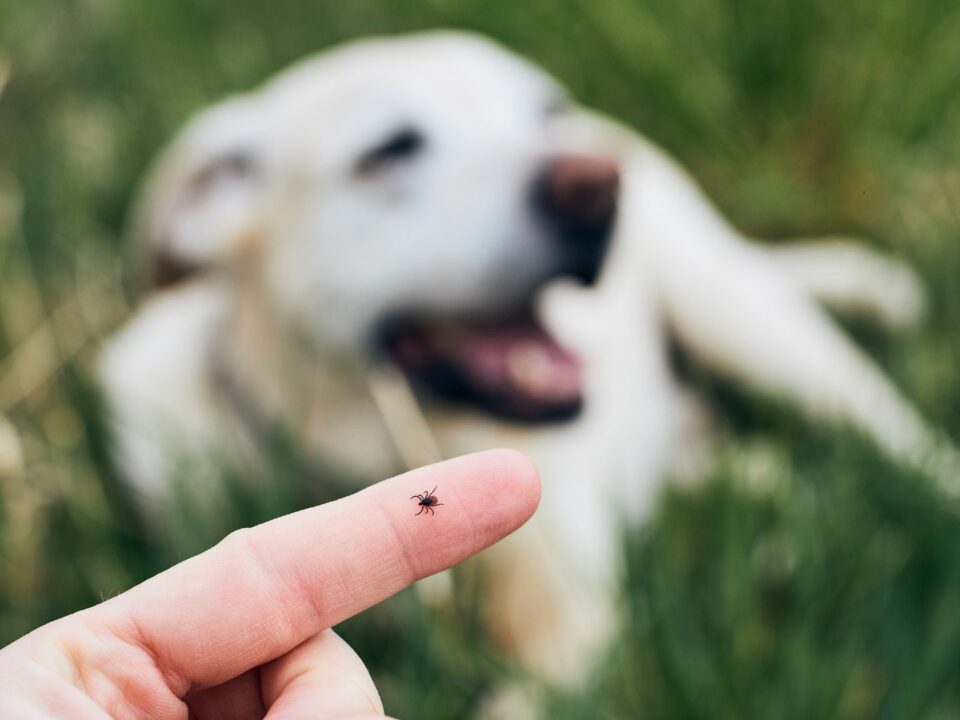
9 Signs your dog may have intestinal worms
April 28, 2023
Everything you need to know about your dog and fleas
April 28, 2023How to Get Rid of Worms in Dogs

Worms aren’t just uncomfortable and dangerous for dogs; they can be passed onto humans and harm your family, too. Worms are parasites that infect a dog’s intestines and feed off blood and other nutrients. Children, in particular, can be at risk of being infected by worms if they are present in pets.
No matter how well cared for your dog is, it’s likely to pick up worms from the environment at some stage. Therefore, it’s essential to understand how best to prevent and treat these parasites before they cause serious health problems in your pet.

How to treat intestinal worms in dogs at home
There are several types of worms that dogs can be affected by. These include hookworm, roundworm, tapeworm and whipworm. In most cases, dog owners should be able to treat their pets at home themselves.
Most worm treatment products cover the four most common types of intestinal parasites, and some also treat heartworm, another type of parasitic worm that lives in a dog’s heart and the blood vessels surrounding it. Some also contain drugs to treat fleas, ticks and mites, so read the information on the packaging carefully to know what your dog is covered for.
1. Over-the-counter medication to treat intestinal worms
Regular treatments with over-the-counter medications can help pet owners avoid a parasite infection. But it’s essential to treat all pets at your home simultaneously, including different species such as cats and birds.
Give your pets a worm treatment at the same time as administering flea prevention. The reason for this is that tapeworms cannot complete their life cycle without the presence of fleas.
The side effects of deworming medication are rare, but it can sometimes cause a dog to vomit. If this is the case, it might be wise to administer it with food in future instances or seek advice from your vet.
The appearance of worm segments in your dog’s faeces following worm treatment is nothing to worry about. It’s a sign the dog is expelling them from their body. Worm segments can appear differently depending on the type of worm. Roundworms live in the intestinal tract and are white, spaghetti-like worms. Whereas tapeworms can look like small grains of white rice.
2. Natural ways to prevent intestinal worms in your dog
Natural remedies may help prevent worms, but you should never rely on them as a standalone treatment because these parasites can be very dangerous, even fatal, in some circumstances. Adding some of these things to their diet could boost their nutrition, but they are not a substitute for an over-the-counter product.
- Fruits and vegetables
- Tumeric
- Pumpkin seeds
When to seek veterinary care for intestinal worms
How dogs react to an infestation of intestinal worms and treatment for it can depend mainly on their age and condition. For example, worms can be more severe in small breeds, which may dehydrate more easily, especially in young puppies.
If your pet seems generally unwell, visiting a veterinarian for an exam is the best course of action to rule out any severe disease.
If you notice any significant symptoms, such as mucus or blood in faeces, this can be a sign of blood loss or a more severe problem, such as infections of the colon or bowel. In this case, seeing a vet as soon as possible is essential for an examination and proper diagnosis.
In most cases, your veterinarian will need a stool sample to test for a worm infestation. This is done by looking for worm eggs under a microscope.

Prevention
- Regularly clean up after your pet and remove faeces from areas that they can access.
- Wash their bedding and clean food and water bowls regularly
- Please wash your hands after patting pets and encourage children to thoroughly wash their hands after playing in your yard, in the dirt or sandpits, etc.
- Always dispose of dog faeces in public parks and playgrounds
- Treat other pets, such as cats, for worms at the same time as deworming your dog.
How often should I treat my dog for intestinal worms?
How often you treat your dog for intestinal worms will depend on the product you are using. Always refer to the manufacturer’s directions. If you have a puppy, it’s essential to begin worming them as soon as they are old enough.
Need Further Advice?
For more advice on preventing parasitic worms such as hookworms, whipworms and heartworms, book a check-up for your dog with a trusted veterinarian.
The friendly and experienced team at Rossmore Veterinary Hospital is committed to giving your animals the care and attention they deserve and giving pet owners the information they need to keep their pets healthy.



